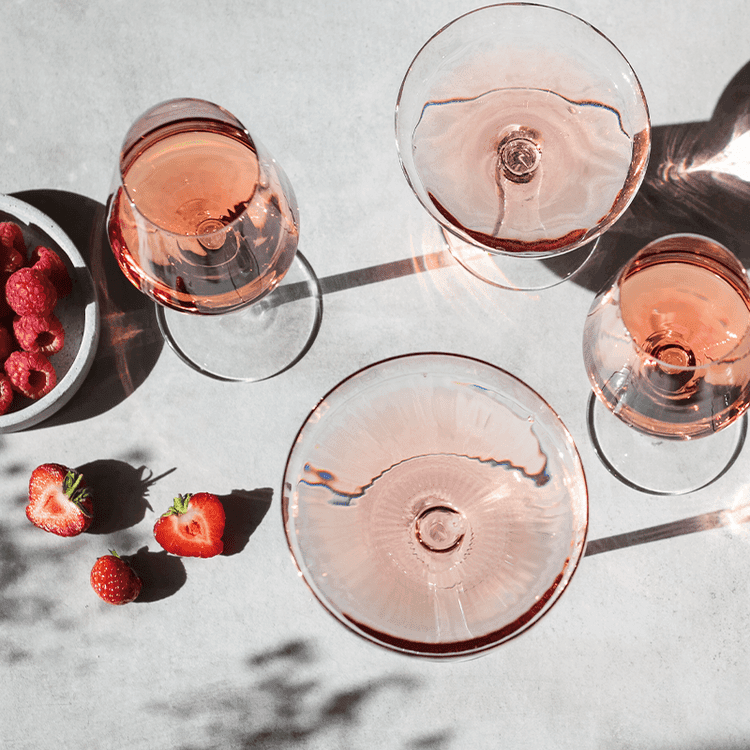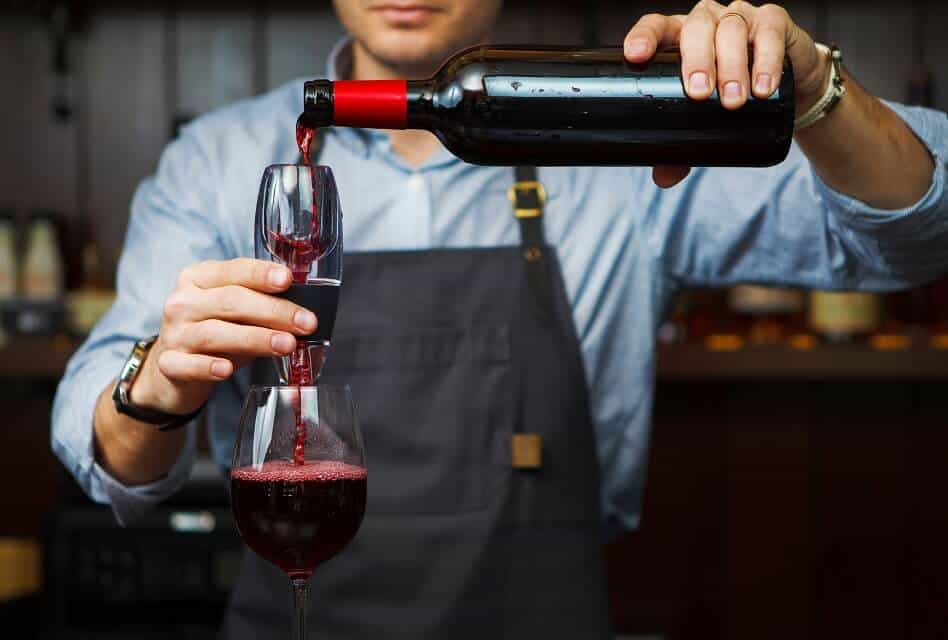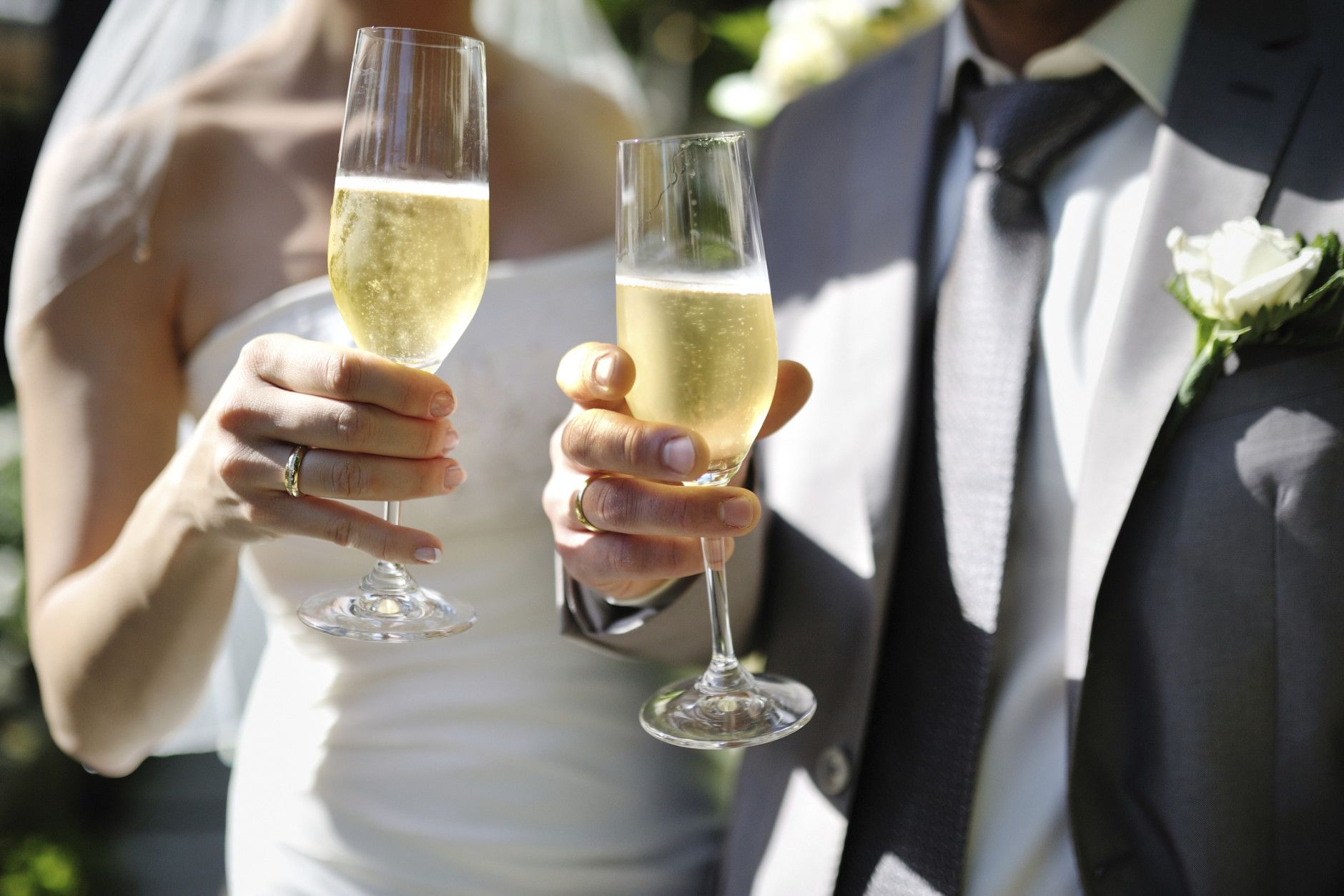April 5, 2023
How To Choose The Perfect Wines For Your Wedding Day

Selecting the perfect wines to celebrate your wedding day is essential, and unless you are a wine expert—and let’s face it, most of us are not—a little guidance goes a long way when finding the right vino to suit your big day. Once you have exchanged your vows and placed the wedding rings on each other's fingers, it will be time to get those corks popping—so make sure you choose your wedding libations carefully!
Choose Wines That Complement Your Wedding Menu
Since wine enhances the flavors of a meal, you will need to learn which wines complement which foods. When serving red meat, such as beef, a full-bodied red wine like a cabernet sauvignon or a Bordeaux makes an excellent accompaniment. For a meal with fish or poultry, lighter white wines like pinot grigio, chardonnay, or sauvignon blanc will do nicely. Since you will most likely be serving different dishes, you will want more than one type of wine. Many sommeliers, A.K.A, professional wine experts, recommend choosing a set of well-rounded and versatile reds and whites. The two grape varietals that sommeliers consider a safe bet for their versatility are sauvignon blanc for entrees with chicken, fish, or cheese and Grenache or Shiraz for courses that are either spicy, savory or have red meat. If you want to offer your guests a greater variety of wines, consider creating a four-wine list that varies from light to full-bodied in red and white styles. A pinot grigio and a pinot noir for your light-bodied, drinking wines, plus a premium chardonnay and a shiraz for your full-bodied, serious wine drinkers, would be a solid example that would work well for most weddings. That way you can accommodate even the pickiest relative using this method.
Keep the Season of Your Wedding in Mind When Selecting Wines
Consider the season of your wedding when selecting wines for your wedding. For a late spring or summer wedding, you may want to go with lighter wines like pinot grigio and rosé. For a late autumn or winter wedding, fuller-bodied wines like merlot, cabernet, or shiraz will be more suitable.

Consider the Number of Guests and Choose Wines That are Within Your Budget
It is helpful to set a budget for wine. Although factoring in the cost of wine will prevent you from exceeding your wedding budget, you also want to spend enough for good quality wines that you and your guests will enjoy. Finding a proper balance between quality and affordability presents a small challenge, but it is achievable with some tasting and research. With the increased availability of affordable quality wines, you do not need to spend a fortune.
Think About The Preferences of Your Guests
Take your guests' palates into account when considering which wines to choose. If most of your attendees are wine connoisseurs, you may want to spend a little more and lean toward more complex wines. If most of your guests are not wine enthusiasts, go for wines that are uncomplicated and easy to drink.
Consider Making Your Wedding Wine Choices Personalized
To make your wedding reception even more sentimental, you can choose wines that bear significance to you and your partner. For example, you may consider serving a wine you drank on your first date, a wine you love from a local vineyard, or a wine produced from your favorite vacation destination. You can even pay homage to your family tree and choose wines from your ancestral region. If you decide to do any of the above, try adding a sentence or two about the significance of your wine choice on the menu for added meaning and charm.
When in Doubt, Consider Hiring a Sommelier
If you are a true wine novice and need advice on what will work best for your special day, you may consider hiring a sommelier if doing so fits your wedding budget. A sommelier is a specially trained and experienced wine expert who typically works in fine restaurants. They are experts in food and wine pairing and all the elements of wine service. Hiring a professional will help you select the perfect wines for your menu and guests while allowing you to stay within your budget. They can also advise you about how much wine to order and how to store and serve your wedding wines.

Determine How Much Wine You Will Need to Buy
When figuring out how many bottles to buy, there are two main factors to consider—the number of guests and the allocation of wine per guest. First, decide how much wine you want to provide to each guest. The most common allotment is 1/2 bottle per person, although it depends on your level of generosity and the drinking habits of your friends and relatives. Serving 2/3 of a bottle per person is advised if most of your guests are avid wine drinkers and you want to ensure that everyone has enough wine, with a little extra just in case. If you and your partner are not big drinkers and expect many non-drinking guests to come, 1/3 of a bottle would be a better option. After determining the number of bottles of wine necessary for your wedding reception, you must decide how many bottles should be red and how many should be white. Also, you may even want to include rosé for a summer wedding. Although a 50/50 split of red and white is commonly recommended, there are other elements to keep in mind:
- The season/climate - Most people prefer white wine in the summer and red wine in the colder weather.
- Your wedding menu - Your caterer can advise whether red or white wine will best complement your menu.
- Your guests' preferences - If your guests prefer red wine or vice versa, use that as a guide.
Don't Forget the Champagne!
Having some tasty bubbly to toast with is a must—it is an essential part of your reception. Since your guests will probably not drink more than a half-glass of sparkling wine, you will not need to buy as many bottles as the other wines you choose. Aromatic sparkling wines such as prosecco, cava, or sparkling rosé work well for daytime or outdoor toasts. Richer sparkling wines such as blanc de noirs, blanc de blancs, Italian metodo classico, or classic French champagne are ideal for evening or indoor toasts.

Although all the above factors are relevant, the best way to figure out which wines you and your partner will want to serve at your wedding boils down to which wines appeal most to your palates. If you are not sure what you like, try going to wine-tasting events, a wine bar, visit a vineyard to sample wines if you live near one, or order a different type of wine whenever you go out to eat; all of which can help you learn what you and your partner prefer.


